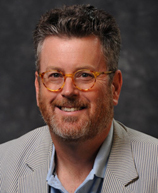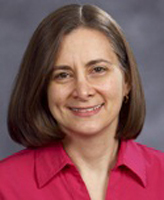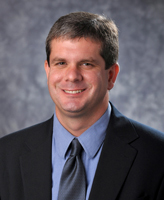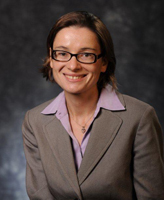Five scholars in Notre Dame’s Department of Political Science were recently awarded research grants and fellowships to study a range of issues that include national security policy, climate change, religion and politics, and legislative trends in post-Communist Europe.
Professors and Policymakers

Professor Michael Desch, who chairs the department, was awarded a Carnegie Corporation of New York planning grant to study how the scholarly research produced at American universities can contribute to the formation of U.S. national security policy.
“Not too long ago, it was quite common for academic social scientists to do research that directly influenced national security policymakers,” Desch says. “Indeed, there was a revolving door between the Ivory Tower and the Beltway through which many professors passed regularly to the benefit of both realms.”
But a gap has since opened up between professors and policymakers, he says, one that Harvard political scientist Joseph Nye characterizes as a yawning chasm.
“With the support of the Carnegie Corporation,” Desch says, “I am tracing the changing relationship between government and the universities in this realm, highlighting its causes and consequences, and suggesting means for achieving a better balance in social science research by scholarly rigor and real-world relevance with particular attention to the field of national security studies.”
Carnegie Corporation is a philanthropic foundation created by Andrew Carnegie in 1911 to do “real and permanent good in this world.” The foundation makes grants to promote international peace and to advance education and knowledge.
Climate Change and Social Science

Associate Professor Debra Javeline has been named an Andrew W. Mellon Foundation New Directions Fellow to develop her expertise in climate change adaptation, or the reduction in vulnerability to climate change, a topic she says has not received enough attention from scholars in her field.
“Climate change adaptation is perhaps the single most understudied political world problem,” Javeline says, “and I would like to devote a significant portion of my future scholarship to correcting this deficit.
“This new, critical field of study is currently populated by climate scientists, ecologists, NGOs, environmental lawyers, urban planners, computer scientists, development experts, resource managers, and policymakers. Political scientists have been largely absent from the conversation, despite the importance of the topic and the need for their contributions.”
Political scientists, Javeline says, can help shed light on many important, unanswered questions about adaptation such as why certain countries lead the way on climate change adaptation while others are lagging; what institutional innovations might facilitate adaptation; and how scholars can distinguish problems caused by climate change from longstanding development issues, unrelated natural disasters, or bad governance.
“This is a fundamentally new direction in my research that will endure for the remainder of my career,” she says.
New Directions Fellowships assist faculty members in the humanities and social sciences “who seek to acquire systematic training outside their own areas of special interest.”
Politics, Religion, and Secularism

The National Science Foundation has awarded Notre Dame political scientists David Campbell and Geoffrey Layman, along with John Green of the University of Akron, a grant to study the political causes and consequences of rising secularism in America.
Campbell, the John Cardinal O’Hara, C.S.C., Associate Professor of Political Science, and Layman, an associate professor in the department, say the number of secular Americans has increased steadily over the past 20 years.
“We suspect that the growth of non-religion has been driven to some extent by political developments—namely the growing association of conservative religion with the Republican Party—but have insufficient evidence on whether or not that is really true.”
To answer that question and others, Campbell and Layman are gathering a variety of data: a national panel survey conducted between the fall 2010 congressional campaign and the fall 2012 presidential campaign, a survey of members of the American Humanist Association, and survey-based experiments on how the insertion of religion into political campaigns and public policy debates affects the way people view religion itself.
“Social scientists know relatively little about the degree to which non-religious Americans are truly secular—truly committed to non-religious ways of viewing the world and/or truly hostile to religion—and how that is related to their political orientations,” they say.
Post-Communism and Legislative Politics

Assistant Professor Monika Nalepa is on leave this academic year as a fellow at Princeton University’s Center for the Study of Democratic Politics, where she is working to complete a book about legislative trends in post-communist Europe, specifically the dwindling rights of individual members of parliament (MPs).
“In the beginning, there was a lot of resistance to parties as the main vehicles of government because of the experience with authoritarian parties under communism,” says Nalepa, a specialist in transitional justice, legislative politics, and Eastern Europe.
“Individual MPs spoke when they felt the urge to, sponsored bills they liked, and voted as they pleased. It is remarkable how quickly parties consolidated, started voting in a much more unified way, and began to discipline their members into submission.”
Nalepa’s book project draws on extensive interviews with parliamentarians, party bosses, and more than half of the house speakers since the transition to democracy. She is also conducting research in the parliamentary archives and analyzing roll call votes from 1993 to the present to show how parties have consolidated power over the years.
Learn More >
- Michael Desch faculty page
- Debra Javeline faculty page
- Geoffrey Layman faculty page
- David Campbell faculty page
- Monika Nalepa faculty page
- David Campbell Receives Woodrow Wilson Foundation Award
- Faculty Collaborate to Research Adaptation to Climate Change
- Monika Nalepa Wins Political Science Book Prize
- Monika Nalepa research website
- Carnegie Corporation of New York
- National Science Foundation
- Andrew W. Mellon Foundation: New Directions Fellowship
- Center for the Study of Democratic Politics